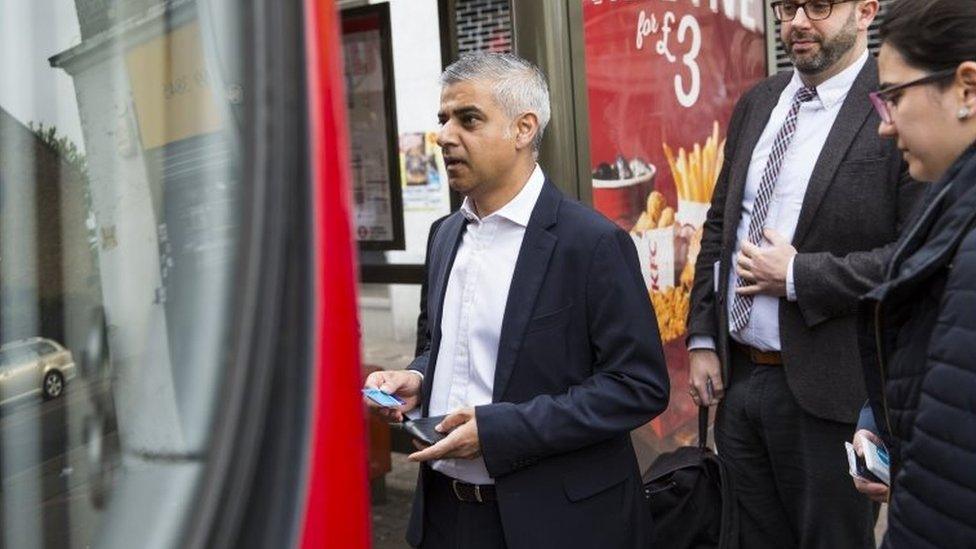London bus and tram 'hopper fare' expanded
- Published
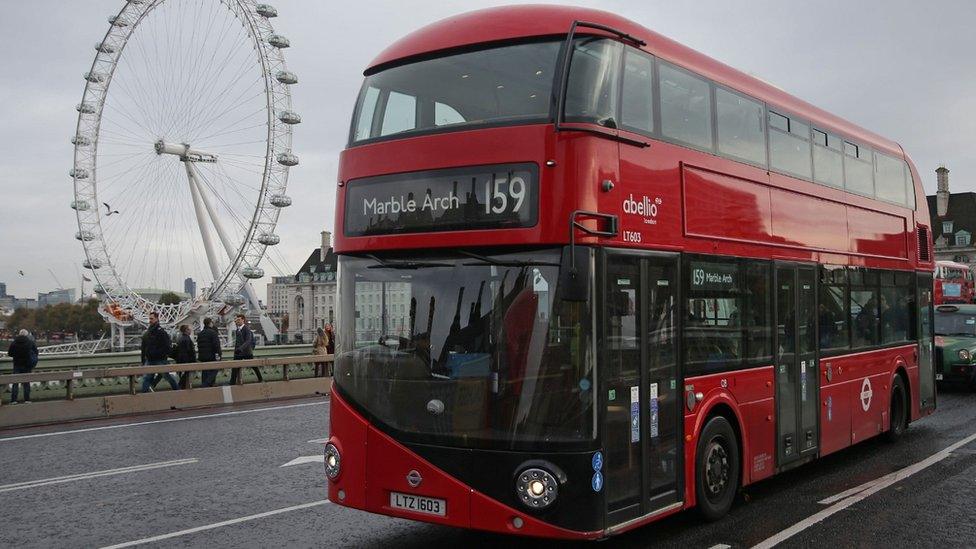
Passengers can make unlimited bus and tram journeys in an hour for the price of a single fare
People in London are now able to make unlimited bus and tram journeys within an hour and only be charged a single fare, the mayor has announced.
The upgraded "hopper fare" allows passengers to make as many changes as possible within 60 minutes for £1.50.
Sadiq Khan said more than 140 million journeys had been made using the "hopper fare" since it was introduced in September 2016.
However, critics accused London's mayor of making "ill-considered promises".
According to Transport for London (TfL), about 350,000 journeys are made every weekday using the current "hopper fare", which allows two bus and tram journeys to be made in an hour for a single fare.
An additional 13,000 people are expected to benefit each day from the upgrade, TfL estimate.
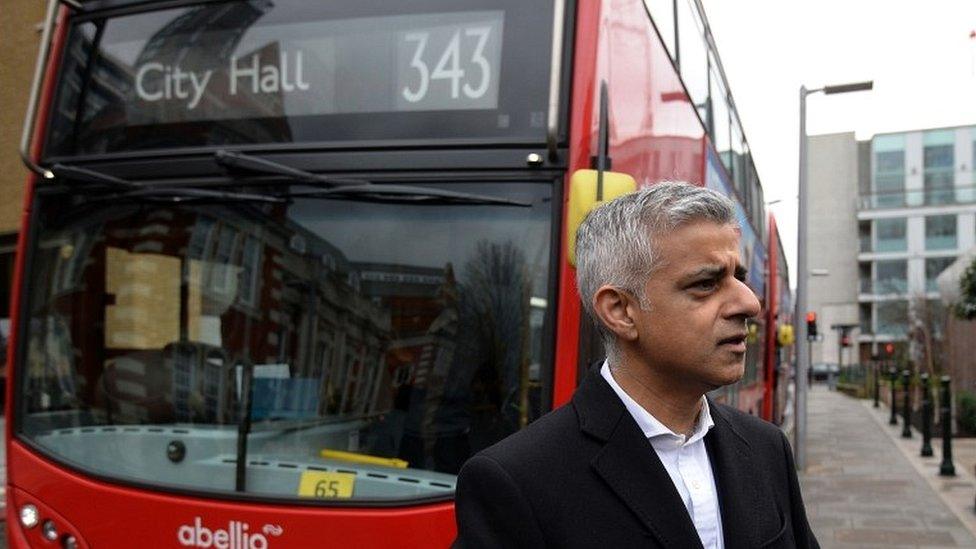
The mayor took a bus to City Hall to mark the first day of the unlimited "hopper fare"
Mr Khan said the change was "a key part of my commitment to make London a more affordable place to live and work".
However, Conservative London Assembly member Keith Prince said the mayor's "ill-considered promises" like the "hopper fare" and fares freeze meant that "TfL are having to make cuts and increase charges left, right and centre".
"When one hand is giving, the other is taking away and Londoners are left with a weaker, more overcrowded service as a consequence," he said.

Analysis by Tom Edwards, BBC London transport correspondent
Mayor Sadiq Khan hopes the "hopper" will pull passengers back to the buses.
There has been a drop in passengers - some 32 million moved away between 2016 and 2017, which has been blamed on everything from congestion, Uber and even the rise of Netflix.
But the mayor is also planning big cuts to London's buses.
He says the bus fleet needs reorganising as Crossrail means many services will not be needed in central London so they will be moved to outer London.
But it will mean for some passengers there will be longer waits between buses. The "hopper" will also cost £35m a year and TfL's budget is already under strain.
So you could argue to pay for the "hopper", bus services are being cut and becoming less frequent.
- Published16 November 2017
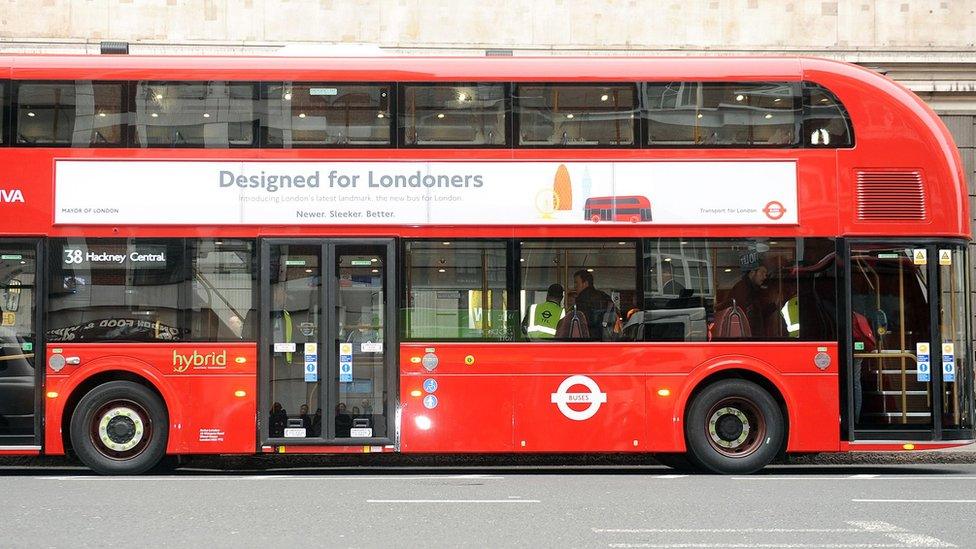
- Published14 January 2018
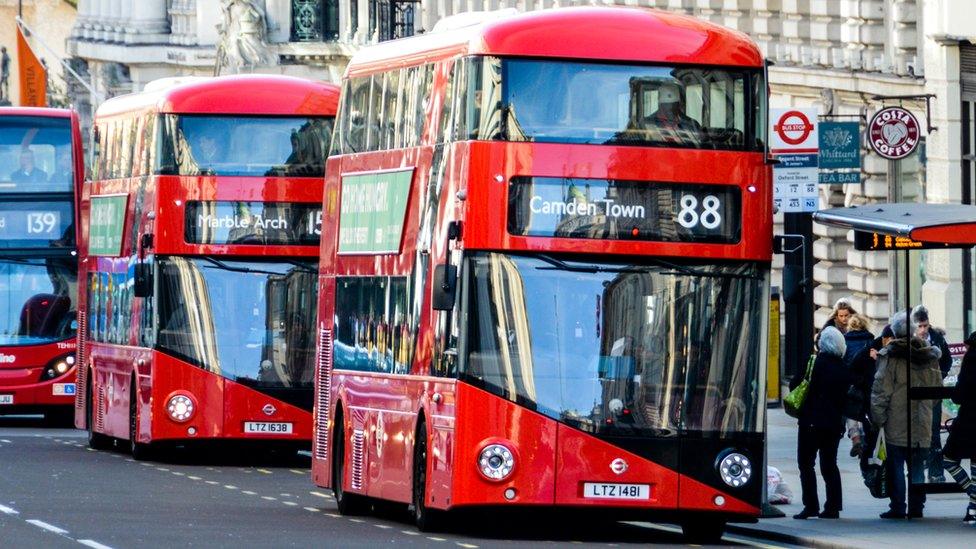
- Published10 May 2016
